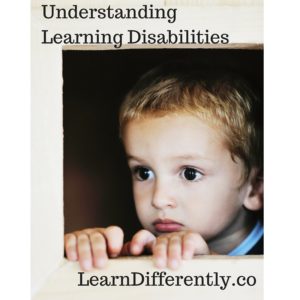Need testing for learning disabilities?

By Kathy Kuhl Does your child or teen need testing for a learning disability? Here are a few suggestions from my book Homeschooling Your Struggling Learner.
Ask yourself why you want testing for your child or teen
- To figure out what’s wrong and learn how to teach better
- To qualify for extended time on college boards or accommodations in college
- To help restore children’s self-esteem.
- To be reassured you’re not doing a bad job. (Last weekend in a California parent asked me if that was a legitimate reason to have your child evaluated. Certainly. Getting my son evaluated helped me understand his difficulties and respect his efforts. It encouraged me that we were making good progress.)
- To find a good therapy.
See a doctor you trust to rule out a medical cause for the learning difficulties
See Homeschooling Your Struggling Learner to see why and how to start here.

Different purposes, different symptoms lead to different experts for testing
- For example, if reading is the only problem, see an academic therapist, an Orton-Gillingham Fellow, or a Wilson tutor for a screening. Screenings are less thorough, cheaper, and quicker than evaluations.
I explain more about these experts in this post. You can find academic therapists by contacting any training center certified by IMSLEC, the International Multisensory Structured Language Education Council.
To find someone with Orton-Gillingham certification, read this.
To learn more or find a Wilson certified teacher, click here. - If dysgraphia, handwriting difficulty, or sensory issues are the main kind of learning disability you suspect, see a pediatric occupational therapist.
- If you suspect an auditory processing disorder, go to the ASHA website. Ask for an audiologist with experience diagnosing auditory processing disorders.
- If eye strain or headaches accompany reading and other desk work, don’t just get the child’s vision checked. Consider the possibility the child (or teen) needs vision therapy. For some helpful checklists from Dr. Ken Westcott’s site, look halfway down this page.
Find an optometrist expert in vision therapy near you by checking the College of Optometrists in Vision Development. (More about vision therapy in an upcoming post.) - See my interview with Dr. Richard Ruth to see when and why you might begin with a psychologist.
Need a neuropsychological evaluation?
But even when there are no other issues, learning disabilities can be complex. A full neuropsychological evaluation is what our family opted for.
A neuropsychological evaluation will take one and a half full days of testing. It will include a full patient history given by the parent beforehand, and a follow up meeting to receive results. You’ll also receive a lengthy report with test results and explanations of them.
Realize that the neuropsychologist’s job is to identify learning disabilities, not treat or cure them. I heard one parent say she wished her fifteen-page report offered more specific advice on how to teach. That’s a common complaint with a neuropsychological report. (That mom was bemused by advice to have the child work in small groups, since she was only homeschooling two boys. But a neuropsychologist explained to me that the comment was probably inserted in case the child was put in school at a later date.)
You may want to take any report to a special education consultant for more advice on how and what to teach.
A few psychologists may be willing to give fewer tests, not the full evaluation. I prefer the big picture, just as I’d want a complete physical if I had a puzzling health problem, but not everyone can afford it.
A university with a graduate school of psychology will offer offer a full neuropsych. evaluation for cheaper, because a grad student will administer them. We went to one near our home for our son’s last tests. It was still expensive, but about $1000 less than going to a private practice.
When a graduate student tests your child, it is only supervised by a licensed psychologist. He or she review the student’s report and audio recordings of the testing being administered. You miss the benefits of an experienced tester, who might think, “That’s an odd combination of results. I’m going to give a test I don’t usually include to tease out that information about how this child learns.”
For much more about testing, read Homeschooling Your Struggling Learner.
Questions are welcome in the comment section below.


One Comment